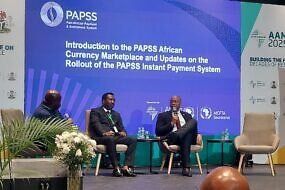Seychelles has once again outranked African tech giants like Nigeria and South Africa in blockchain funding. According to the latest African Blockchain Report by CV VC, the island nation pulled in $38.35 million, representing 31% of all blockchain investment on the continent. South Africa followed with $24.25 million, while Nigeria came third at $18.85 million.
This isn’t new. Seychelles has led the pack since CV VC began tracking funding four years ago. Yet the country remains a surprising front-runner. It does not feature among the top African countries for crypto adoption or transaction volumes.
The dominance is fading, though. Back in 2022, Seychelles received $209 million, accounting for 43% of African blockchain funding. By 2023, this had dropped to $89 million, though it still made up 46% of the year’s total.
Nigeria Leads in Volume, But Not Value
Nigeria’s numbers present a curious case. The West African country saw an influx of nearly $60 billion in cryptocurrency activity between 2022 and 2023. However, its blockchain startups only secured $15.9 million and $1.5 million in those same years.
In 2024, Nigeria bounced back slightly with $18.85 million in funding and now leads the continent in deal volume. The country sealed 10 deals, or 33% of all African blockchain investments this year. Seychelles followed with 8 deals, about 31%.
“Blockchain technology is uniquely suited to solving niche African problems, and African founders are showing the world how blockchain addresses real-world challenges,” said Jarryd Kennedy, Head of Investments at CV VC Africa.
Big rounds have helped drive Africa’s deal count. Notable examples include Yellow Card’s $33 million Series C, Zone’s $8.5 million pre-seed, and Juicyway’s $3 million raise.
Africa’s Share of Global Blockchain Funding Is Still Tiny
Despite the progress, Africa still makes up just 1% of global blockchain funding. After peaking at $474 million in 2022, funding fell to $190.7 million in 2023, and now sits at $122.45 million in 2024.
What’s more, 40% of this year’s funding went to centralised finance services like crypto exchanges and cross-border platforms. Sectors like blockchain infrastructure saw little to no investment, although this is disputed—Zone, for instance, operates with blockchain fundamentals yet remains labelled otherwise by some.







No Comments